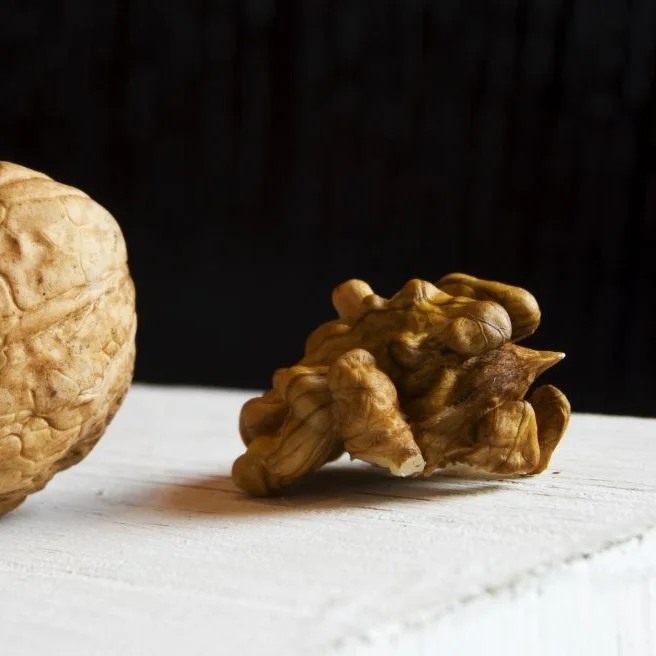The sun-drenched landscapes of Uzège conceal beneath their surface a gastronomic treasure of unparalleled allure: the black truffle. These 'black diamonds' represent the perfect marriage between nature's patience and human expertise—a mysterious alchemy that occurs in the calcium-rich soils around Uzès. Journey with us from truffle hunt to table as we explore this emblem of Languedoc's gastronomic heritage.
Nurtured between Mediterranean salt marshes and fresh Rhône waters, Camargue rice embodies the wild soul of Provence. The ruby-hued rouge variety offers a profound nutty character that transforms simple ingredients into extraordinary dishes, while the IGP-protected white grains have sustained Provençal traditions for generations. Discover how to identify, prepare, and pair this exceptional grain with locally-foraged wild fennel and regional wines from our doorstep at La Flânerie.
Prized for their delicate sweetness, these AOC-protected onions grow in the mineral-rich soil of the Cévennes mountains. Local farmers cultivate these pearl-white treasures using traditional methods passed down through generations. Their mild flavor makes them perfect for both raw and cooked dishes.
Summer brings an abundance of plump, honey-sweet figs to local markets. These ancient fruits, perfectly adapted to the Mediterranean climate, burst with flavor from June through October. Local varieties range from deep purple to vibrant green, each offering its own subtle sweetness.
These AOC-protected walnuts, with their delicate, buttery flavor, thrive in the region's unique climate. Their smooth shells open to reveal plump, golden kernels that add richness to salads and traditional desserts. Local producers still crack them by hand.
The region's apricots, kissed by the Provençal sun, develop an intense sweetness and deep orange hue. Local markets overflow with these fragrant fruits in early summer, perfect for morning tartines or transformed into traditional confiture enjoyed year-round.
Gathered from the ancient groves of the Cévennes, these sweet, starchy nuts have sustained mountain communities for centuries. Autumn brings their distinctive aroma to village squares as vendors roast them over open fires, a tradition cherished by locals.
This small, artisanal goat cheese carries the soul of the Cévennes in every bite. Protected by AOC status, Pélardon embodies centuries of cheese-making tradition. Its complex flavor evolves from fresh and delicate to intensely nutty as it ages.
Welcome to our wine-growing region! Tasting a glass of wine in the Pays d'Uzès Pont du Gard is an integral part of local life, a moment of conviviality. Enjoy fine wines with gourmet menus or table wines with a picnic. Discover the stories behind AOP Duché d'Uzès and more with guided tours and tastings. Immerse yourself in a wine lover's paradise.
Hand-harvested from the pristine salt pans of the Camargue, this delicate "flower of salt" forms like frost on the water's surface. Local artisans gather these precious crystals using wooden rakes, preserving centuries-old harvesting traditions.
Photo by James & Carol Lee
Sun-ripened olives from ancient groves define the landscape and cuisine of Uzès. Local varieties like Picholine and Lucques offer distinct flavors and textures, while traditional mills press golden oil that captures the essence of Provence.
Photo by Joanna Kosinska
Spring brings a burst of crimson as cherry trees bloom across the region. These succulent fruits, ranging from bright red to almost black, appear first at local markets, signaling the start of the fruit season in Provence.
Photo by Charlotte Coneybeer
Our curated collection of regional recipes celebrates local ingredients and traditions. Each dish tells a story of seasonal produce, traditional techniques, and the joy of Provençal cooking, adapted for modern kitchens while honoring authentic flavors.
Local beekeepers position their hives among lavender fields and garrigue herbs, producing honey that captures the essence of Provence. Each variety offers unique flavors, from delicate spring blossoms to intense summer herbs.
A sweet tribute to Uzès's unexpected candy-making heritage, this museum delights visitors with the story of Haribo's founding. Interactive exhibits and generous samples make this a favorite stop for families discovering the region's diverse culture.















